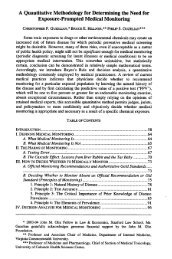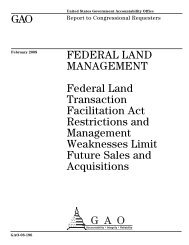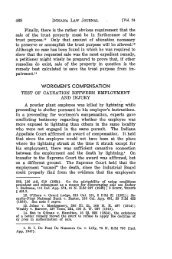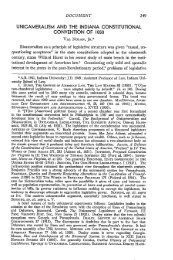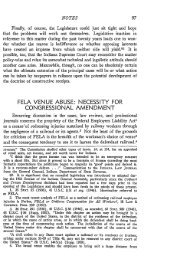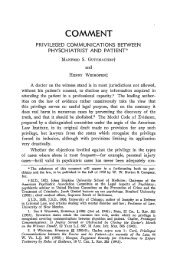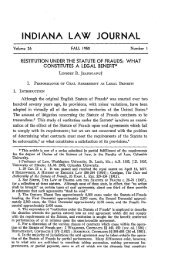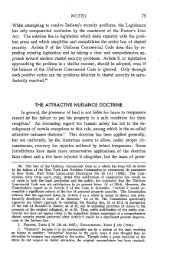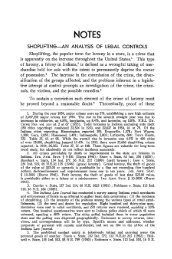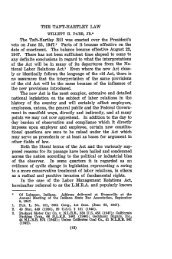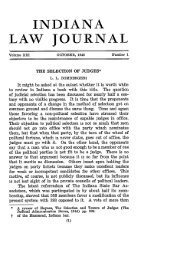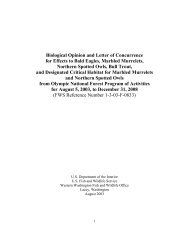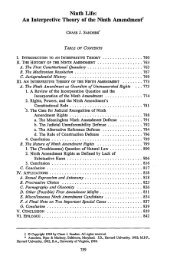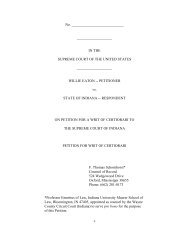constitutional aspects of state extradition legislation - Indiana Law ...
constitutional aspects of state extradition legislation - Indiana Law ...
constitutional aspects of state extradition legislation - Indiana Law ...
You also want an ePaper? Increase the reach of your titles
YUMPU automatically turns print PDFs into web optimized ePapers that Google loves.
NOTES<br />
Requiring the arresting <strong>of</strong>ficers to appear before a magistrate would<br />
not impose an undue burden, but it would afford some protection against<br />
unjustifiable rendition.<br />
But stipulating that such a hearing is always necessary is unwarranted.<br />
Under the Parolee Compact, for example, the parolee as a<br />
condition <strong>of</strong> his release must agree to be returned without <strong>extradition</strong><br />
proceedings in the event <strong>of</strong> a breach. 39 Failure to require a hearing in<br />
such a situation would hardly be a grave injustice since the only question<br />
is whether he violated parole. This, <strong>of</strong> course, is decided by the<br />
proper agency in the parolling <strong>state</strong>. The pursuit compact materially<br />
differs in that no consent has been given nor is there an uncompleted<br />
sentence to be served, i.e., the person has not been convicted <strong>of</strong> a crime.<br />
Conclusion<br />
The <strong>constitutional</strong> validity <strong>of</strong> <strong>state</strong> <strong>legislation</strong> relating to <strong>extradition</strong><br />
has not yet been decided by the United States Supreme Court.<br />
Since the policy underlying these measures is to aid the process <strong>of</strong><br />
criminal justice by bringing alleged law violators to trial and by providing<br />
for the readjustment <strong>of</strong> past <strong>of</strong>fenders to society, substantial<br />
grounds exist for sustaining their validity. Furthermore, no realistic<br />
considerations require Article 4, Section 2, to be so construed as to<br />
foreclose the <strong>state</strong>s from providing for rendition in circumstances obviously<br />
not anticipated in the 18th century. Measuring <strong>state</strong> ena(!tments<br />
against the traditional due process concept <strong>of</strong> justice and decency would<br />
effectively correct any injustices which may result should the <strong>state</strong>s<br />
furnish other less rigid rendition procedures. In this fashion the <strong>extradition</strong><br />
clause <strong>of</strong> the Constitution would not stand as an obstacle to<br />
realistic solution <strong>of</strong> problems which are national in origin, but not subject<br />
to Congressional treatment within the mandate <strong>of</strong> the Constitution.<br />
39. Ex parte Tenner, 20 Cal.2d 670, 128 P.2d 338 (1942).




